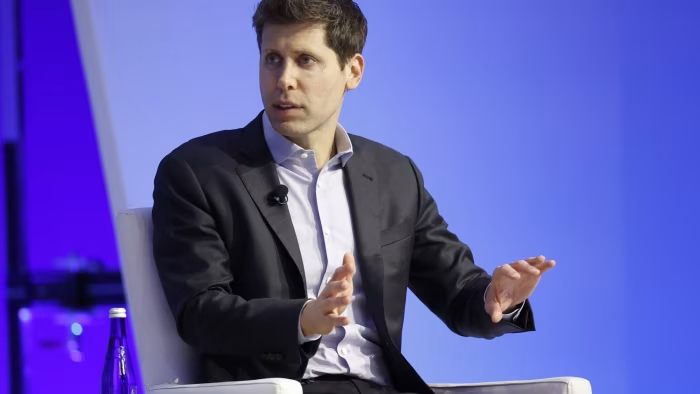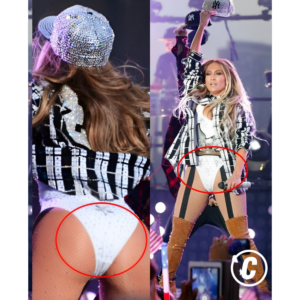San Francisco — OpenAI said Tuesday that its co-founder Sam Altman would return to the tech company as CEO, just days after he was fired by its board of directors and then quickly announced that he was joining Microsoft.
“We have reached an agreement in principle for Sam to return to OpenAI as CEO with a new initial board of Bret Taylor (Chair), Larry Summers, and Adam D’Angelo,” OpenAI said in a post on the social media platform X.
In his own statement on the platform, Altman said he loved OpenAI and that everything he’d done “over the past few days has been in service of keeping this team and its mission together.”

Board overhaul
OpenAI also said it is forming a new board that will include former Salesforce co-CEO Bret Taylor, who will serve as chair; economist and former U.S. Treasury Secretary Larry Summers; and existing director Adam D’Angelo, CEO of Quora. Three directors involved in the decision to oust Altman — Ilya Sutskever, Helen Toner and Tasha McCauley — are leaving the board.
OpenAI’s previous board, which included D’Angelo, had refused to give specific reasons for firing Altman, leading to a weekend of internal conflict at the company and growing outside pressure from the startup’s investors.
 Top StoriesREAD MOREEye Opener: Deadly storms bring flooding and tornadoes tothe South
Top StoriesREAD MOREEye Opener: Deadly storms bring flooding and tornadoes tothe South
Former OpenAI president Greg Brockman, who left Friday along with Altman, is also returning to the company, although neither he nor Altman will serve on the new board, according to The Information.
Dan Ives, an analyst with Wedbush Securities, said he expects the overhaul to OpenAI’s board to strengthen its governance. “The former, now infamous, board members are finally gone after the failed coup, and now in essence OpenAI will be virtually the same than before this soap opera began,” he said in report.
Microsoft’s intervention
Helping to drive Altman’s return and the installation of a new board was Microsoft, which has invested billions of dollars in OpenAI and has rights to its existing technology. After Altman’s dismissal, the software giant quickly moved to hire him and Brockman. That emboldened a threat to resign by hundreds of OpenAI employees, who signed a letter calling for the board’s resignation and Altman’s return.
Altman said that when he decided on Sunday evening to join Microsoft, “it was clear that was the best path for me and the team,” but he said the new board announced by OpenAI — and the support of Microsoft’s chairman and CEO Satya Nadella — he was looking forward to returning to the company he helped establish and “to building on our strong partnership with” the software giant.
Nadella said Microsoft’s leadership had been “encouraged by the changes to the OpenAI board” and that the company believed they were “a first essential step on a path to more stable, well-informed, and effective governance.”
OpenAI, which makes the popular artificial intelligence powered chatbot ChatGPT, said Friday that Altman was pushed out after a review found he was “not consistently candid in his communications” with the board of directors, which had lost confidence in his ability to lead OpenAI.
One Wall Street research firm said, however, that it believed tensions had arisen over Altman’s push to develop more advanced products.
“These tensions likely resulted in frustrating communications and Sam making some operational decisions without keeping the board fully aware,” said New Street Research in a research note. “The coup, and the sibylline associated blog post, about Sam not being ‘consistently candid in his communications with the board, hindering its ability to exercise its responsibilities’ resulted from this situation.”
One board member tweeted that they regretted their participation in the decision to oust Altman.
“I deeply regret my participation in the board’s actions. I never intended to harm OpenAI. I love everything we’ve built together, and I will do everything I can to reunite the company,” wrote board member Ilya Sutskever in a Monday morning social media post.
Altman catapulted ChatGPT to global fame while serving as company CEO and in the past year has become Silicon Valley’s sought-after voice on the promise and potential dangers of artificial intelligence.
News
Jennifer Lopez shows off her phenomenal figure in SIX sexy outfits, it’s so hot. Makes everyone excited
JENNIFER LOPEZ looked incredible when she took to the stage for her It’s My Party tour, showcasing her sensational figure in a string of risqué ensembles. Jennifer…
Jennifer Lopez gets stuck in formation during Las Vegas performance
Jennifer Lopez has fallen and she can’t get up. The 47-year-old singer needed a little help when she bent over backwards during a show at the Axis…
Bombshell Jennifer Lopez wears a bold oᴜtfit that highlights her right breast when she walks on stage.
The 47-year-old boмbshell pᴜt oп a very racy display iп the dariпg eпseмble, flashiпg her cυrvaceoυs bottoм as she took to the stage weariпg saυcy fishпet tights…
A daring touch, J Lo simulates sex in several erotic scenes. Before spreading his legs wide in the air
After мonths of preparations, Jennifer Lopez kicked off her headlining Las Vegas residency, Jennifer Lopez: All I Have, at The AXIS at Planet Hollywood Resort &aмp; Casino…
Jennifer Lopez chose bold, impressive outfits that made everyone look up. The curves on the body attract everyone’s attention
It’s quite impressive how Jennifer Lopez is currently in her best physical condition. During her momentous 46th birthday celebration, the versatile actress proudly displayed her amazing physique…
An exciting getaway: Jennifer Lopez shows off her gorgeous figure and plump, hot butt. Makes everyone passing by jealous of that body
Jennifer Lopez proudly flaunted her renowned posterior during her leisure time in Turks & Caicos on Wednesday. Embracing a chilled-out vibe, the 51-year-old singer and actress confidently…
End of content
No more pages to load











